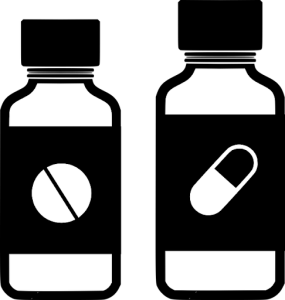 When you or your child have a headache or injury, you likely reach for acetaminophen (Tylenol) or ibuprofen (Advil), says Marla Ahlgrimm, a retired pharmacist with more than 40 years of experience in the healthcare industry. But which one is best? And what’s the difference between the two?
When you or your child have a headache or injury, you likely reach for acetaminophen (Tylenol) or ibuprofen (Advil), says Marla Ahlgrimm, a retired pharmacist with more than 40 years of experience in the healthcare industry. But which one is best? And what’s the difference between the two?
According to Marla Ahlgrimm, both acetaminophen and ibuprofen are meant to relieve pain and lower fevers. However, although science does not fully agree on the exact mechanisms by which each drug works, there are some pretty good theories. It’s believed that these medications block enzymes to pain-propagating chemicals known as prostaglandins.
Both medications can help relieve pain. The key difference is that acetaminophen-based products work on the brain to reduce the perception of pain and reduce fever. Ibuprofen, on the other hand, lessens inflammation and swelling, meaning it works throughout the entire body.
Risk And Rewards
Marla Ahlgrimm says that the benefits of Tylenol and Advil are clear: lowered fever, decreased pain, and (for ibuprofen) reduced inflammation. But there are also risks that we must consider. Excessive long-term use of ibuprofen, for example, may decrease your body’s ability to protect itself from stomach acid. This may result in ulcers, kidney damage, or high blood pressure.
Tylenol and other acetaminophen products are riskier when taken in high doses. Overuse may trigger liver failure (call your local poison control center immediately if you suspect an acetaminophen overdose) and other types of organ damage.
The use of either medication to treat headaches may lead to a type of physical dependency that triggers even more headaches as the body naturally metabolizes the medication, leaving less of the drug in the bloodstream.
Ultimately, Marla Ahlgrimm says that both acetaminophen and ibuprofen are considered safe when used for short periods of time and in age and size-appropriate amounts.
Double Duty
If you’ve never heard the term piggybacking, it’s simply a way of saying that you can use one drug at the same time as another. Both ibuprofen and Tylenol may “piggyback” off of one another, which can be highly effective at eliminating pain. Because the two drugs work by blocking enzymes at different locations, they can be taken together or alternated. This is highly useful for people who are at risk of opioid addiction because these lower-potency medications may be used to control mild to moderate pain without the need to use addictive substances.
When To Call Your Doctor
 While Marla Ahlgrimm believes that the use of Tylenol and/or Advil (acetaminophen and/or ibuprofen) is safe from most healthy adults and children, pain or fever that last more than just a few days and that don’t respond to at-home treatment should be discussed with your primary health care physician. Remember, most minor issues resolve on their own with self-treatment; pain that doesn’t go away or fevers that refuse to fade may be the body’s way of telling you something more is wrong and that it’s time to call in an expert.
While Marla Ahlgrimm believes that the use of Tylenol and/or Advil (acetaminophen and/or ibuprofen) is safe from most healthy adults and children, pain or fever that last more than just a few days and that don’t respond to at-home treatment should be discussed with your primary health care physician. Remember, most minor issues resolve on their own with self-treatment; pain that doesn’t go away or fevers that refuse to fade may be the body’s way of telling you something more is wrong and that it’s time to call in an expert.
The bottom line: Tylenol and ibuprofen work in different ways, and they are usually safe to take together. But Marla Ahlgrimm cautions that common sense is key when taking any OTC medication.













 Marla Ahlgrimm has co-authored two ground-breaking books,
Marla Ahlgrimm has co-authored two ground-breaking books,